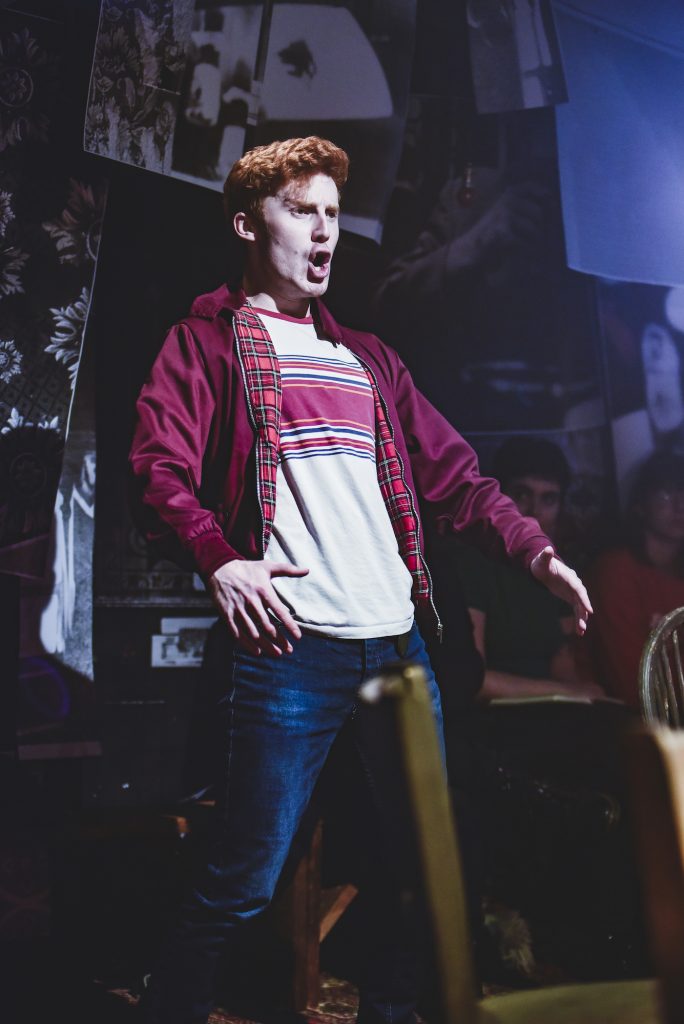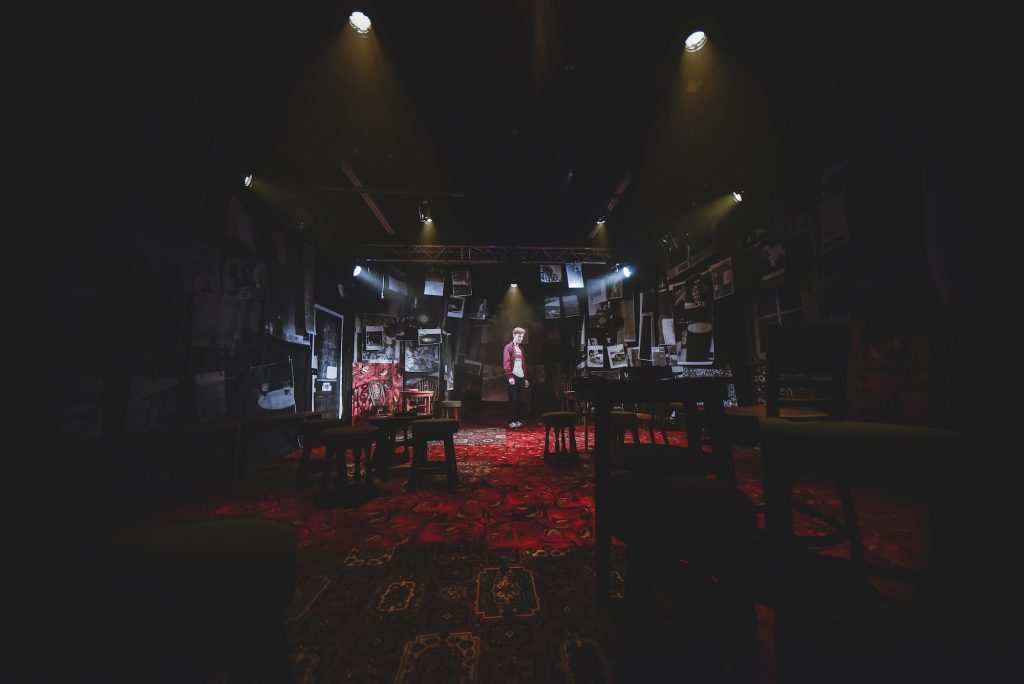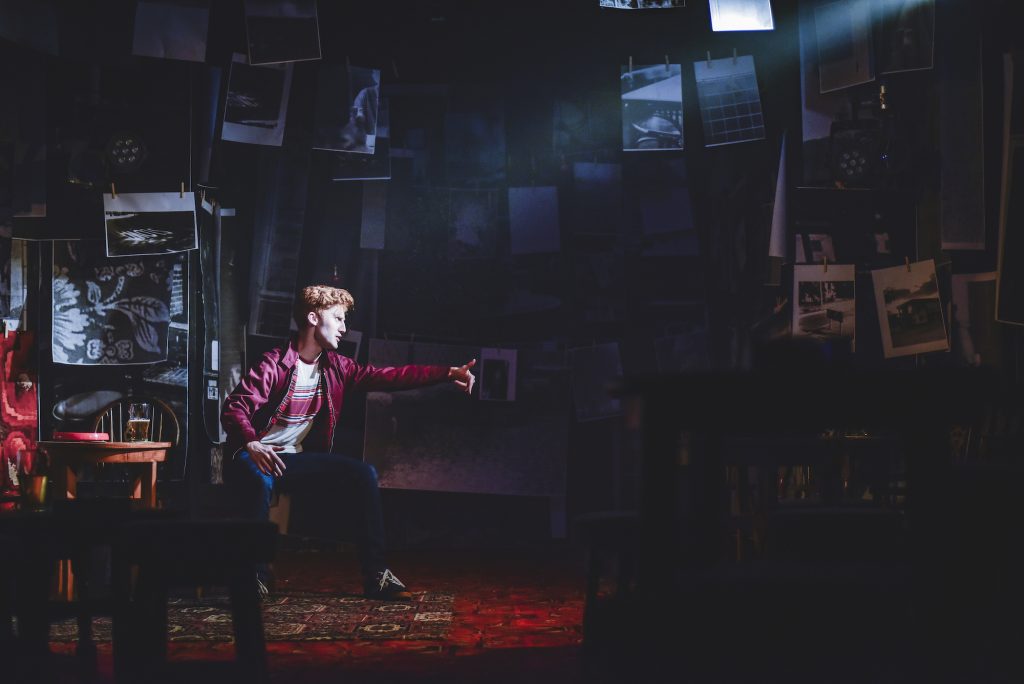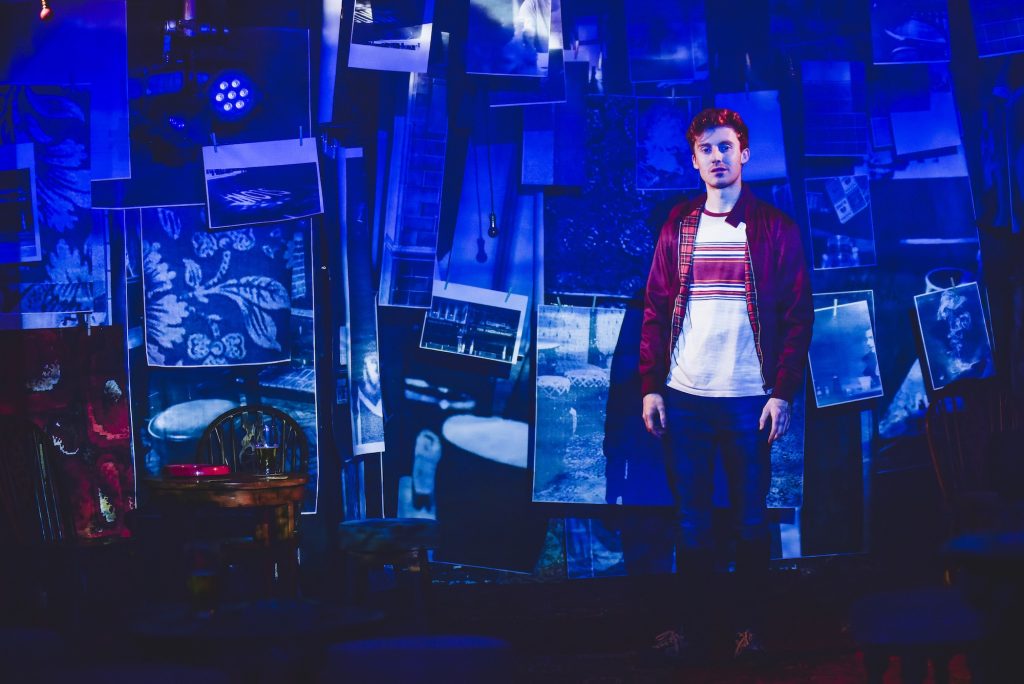It is rather difficult for me to write a measured, objective review of Cardiff Boy, as I suspect it might be for anyone who was a teenager between the 90s and the 2000s. This might partly be because some moments in the play spoke so directly to my own experiences that it was hard to separate my personal reactions from those of the characters, and partly because of the ability that the writing and staging have to vividly evoke those times – the music, the pastimes, the types of friendships one built, the social codes of young people in those years.
Because of this attention to how human the characters it paints are, Kevin Jones’ writing has managed to achieve an odd sort of universality, where a work that on paper might appear to be somewhat restrictively tied to an experience of Cardiff specifically has instead the power to resonate just as deeply with someone who, like me, lived those formative years in another country entirely. It works because the play’s protagonist and narrator, through whose eyes the entire narrative is filtered, is a believable young man that we might all at some point have known, if not been; because his places are believable places that we might have visited; because many of his experiences are believable experiences that many of us will at some point have had.
Jones’ writing is truly excellent throughout; his attention to character is remarkable, and he has a delicate approach to the depiction of feelings, emotions, and pain, never too blunt or overly dramatic. There is more than one moment in Cardiff Boy that could easily be at risk of being overdone, but the risk is always avoid in such a graceful way that it is acknowledged only as an afterthought. The work of director Matthew Holmquist’s is also deeply insightful, engaging with the text and playing with a soundtrack that becomes an integral part of the story, almost telling a separate storyline. The decision to set the play in a space that recreates the inside of a pub turns the audience into direct participants, drawn into the pub, the club, the house party, the spaces they are likely to have inhabited at some point in their teenage years. This creates a solid, intense environment for actor Jack Hammett to move in. His performance is incisive, believable, and endearing: charmingly awkward at times, powerfully raw at others. He shoulders the weight of the narration with ease and delivers a character whose passions, missteps and uncertainties can easily be shared and understood.
Some of the transitions in the play might be ever so slightly clumsy or overlong, and some of the lights are used in a slightly puzzling way, but these are truly minor flaws in a work that delivers some heavy punches without ever losing its elegance, and somehow manages to put together levity and harsh honesty all the way through an ending that would have been very hard to handle for many. We have seen in recent years a variety of works engage with the ways that gender stereotypes and constraints influence and damage the life experience of young women; the same discourse has not been applied to young men nearly often enough. It is therefore a pleasure in itself to see a play engage with it at last, and even more so when it does so in such an intelligent and heartfelt way. It is to be hoped that the theatre scene in Wales and beyond will explore these themes more often, and with the same insightfulness displayed here by both writer, director, and performer.
With a staging that fits perfectly in the larger context of the Other Room at Porter’s, an ability to handle complex and sometimes heavy themes with great sensitivity, compassion, and a gentle sense of humour, and a top-notch performance fleshing out a character that many will find familiar, Cardiff Boy is truly a little gem, and one of the better offerings from Welsh theatre in this 2018. It avoids the risk of simply pandering to easy nostalgia and speaks directly to the experiences, fears, and feelings that many of us will have experienced as teenagers. It is a truly powerful piece that will certainly not leave its audience indifferent, showcasing some impressive talent from all creatives involved.
The Other Room until November 11
Images Kirtsen McTernan
About Arts Scene in Wales, the independent voice of artists and critics in Wales: https://asiw.co.uk/about-us



